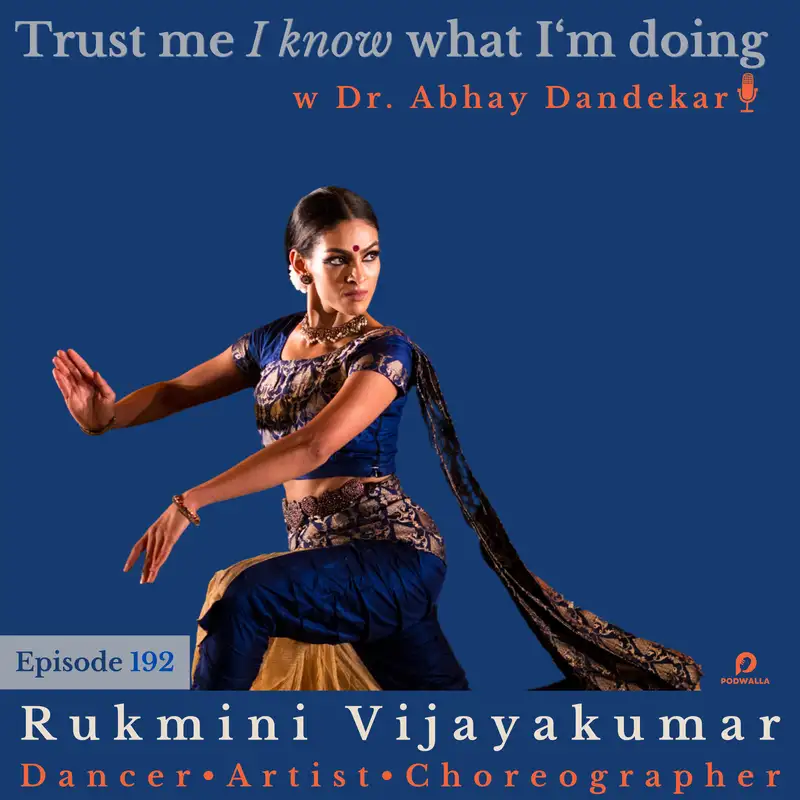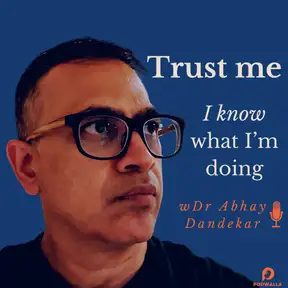Rukmini Vijayakumar...on bharatnatyam and a journey of ongoing learning
Download MP3As we find ourselves in 2024,I find myself thinking about how innovation and creation are happening at a breathtaking speed. Whether it’s AI transforming just about everything or following the pace of artistic trends online, the idea of creating something meaningful from at least the viewer's perspective sometimes might feel…well…effortless. For what it’s worth,I know you devote effort and put energy into listening to this podcast and so I’m quite grateful to you for being a part of it and sharing it with your friends. So in a world of superficial effortlessness, I wanted to talk about the opposite -that which actually takes time and attention to detail to express a physical and mental balance and energy. Now for those who are particularly studying and aiming to perfect a classical performing art form like bharatnatyam, especially in a world that seems to be governed by instant and fast gratification, there is no doubt a celebration of effort and an incredible self-awareness in order to demonstrate expertise and even mastery. So I was thankful to share a conversation with Rukmini Vijayakumar, a dance artist and choreographer based in Bangalore in Karnataka,Indi . She is the artistic director of the Raadha Kalpa Dance Company, and creative director of LshVa, a space for artists. She’s also the founder of The Raadha Kalpa method, an educational system of bharatanatyam pedagogy that is based on the idea of neutrality of body and mind. Rukmini has performed as a soloist all over the world and her style of performance is greatly influenced by the ancient movement practice of Karanas. A graduate of the Boston Conservatory and having studied ballet and acting and other diverse forms of expressions, her choreographies draw from the ancient, retaining tradition even while making them relevant to a contemporary world. I think these expressions of the bharatnatyam vocabulary not only speak to Rukmini’s audiences, but allow her to challenge her own opinions at every juncture, keeping her work relevant and alive. We caught up to chat about it all, and I started by asking her about how years of studying, and performing, and teaching have perhaps made her a better observer of dance performances…

